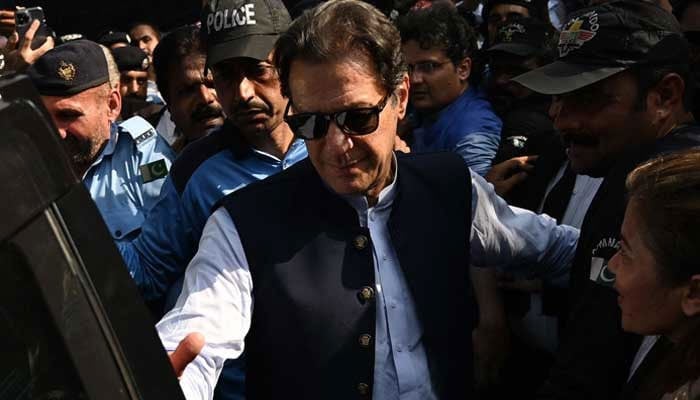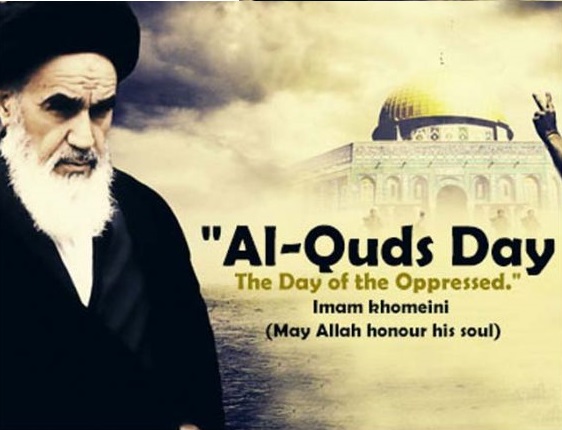ISLAMABAD: Incarcerated former prime minister Imran Khan Friday moved the Islamabad High Court (IHC) against his sentences in the cipher and Toshakhana cases.
The Pakistan Tehreek-e-Insaf (PTI) founder’s counsels Barrister Ali Zafar and Barrister Salman Safdar filed the appeals on behalf of their client, seeking to terminate his conviction in the two cases.
The petitioner also requested the court to suspend his sentences and order for his release till the final judgments in his appeals.
In the cipher case, the petitioner stated that being the prime minister he was not responsible to keep the document with him or send it back to the Foreign Office (FO).
It was the responsibility of the principal secretary to the PM to ensure the safety and return of the cipher to the FO, Khan argued in his petition.
The IHC terminated the proceedings of the trial court twice due to irregularities, read the petition.
The special court completed the trial in haste which had affected the right of the petitioner to a fair trial.
The petitioner further said that the trial court appointed inexperienced defence lawyers who conducted cross-examinations against witnesses without preparation.
The trial court framed charges against him without providing the complete record of the case, the plea added.
Last month, the PTI founder had been sentenced to 10 years in the cipher case.
During the same month, an accountability court sentenced the former prime minister and his spouse Bushra Bibi to 14 years in prison with rigorous punishment in the Toshakhana reference.
Accountability court’s Judge Muhammad Bashir announced the verdict, also disqualifying the former prime minister for 10 years while handing over a fine of Rs1.57 billion — Rs787 million each — to the couple.
Toshakhana case
The Toshakhana has been under a microscope ever since the emergence of the allegations that Khan purchased the gifts he received as prime minister at throwaway rates and sold them off in the open market for staggering profits.
The 70-year-old cricketer-turned-politician was accused of misusing his 2018 to 2022 premiership to buy and sell gifts in state possession that were received during visits abroad and worth more than Rs140 million ($635,000).
The gifts included watches given by a royal family, according to government officials, who have alleged previously that Khan’s aides sold them in Dubai.
Moreover, seven wristwatches, six made by watchmaker Rolex, and the most expensive a “Master Graff limited edition” valued at 85 million Pakistani rupees ($385,000), were also among the gifts.
A reference was forwarded by National Assembly then-speaker Raja Pervez Ashraf to the Election Commission asking it to probe the matter.
The electoral body then declared the former premier guilty of corrupt practices and filed a complaint in an Islamabad court.
What is ciphergate?
The controversy first emerged on March 27, 2022, when Khan — less than a month before his ouster in April 2022 — while addressing a public rally waved a letter before the crowd, claiming that it was a cipher from a foreign nation that had conspired with his political rivals to have the PTI government overthrown.
He did not reveal the contents of the letter nor did he mention the name of the nation it came from. But a few days later, he accused the United States (US) of conspiring against him and alleged that Assistant Secretary of State for South and Central Asia Affairs Donald Lu had sought his removal.
The cipher was about former Pakistan ambassador to the US Majeed’s meeting with Lu.
The former PM, claiming that he was reading contents from the cipher, said that “all will be forgiven for Pakistan if Imran Khan is removed from power”.
Then on March 31, the National Security Committee (NSC) took up the matter and decided to issue a “strong demarche” to the US for its “blatant interference in the internal affairs of Pakistan”.
Later, after his removal, then-prime minister Shehbaz Sharif convened a meeting of the NSC, which came to the conclusion that it had found no evidence of a foreign conspiracy in the cable.




